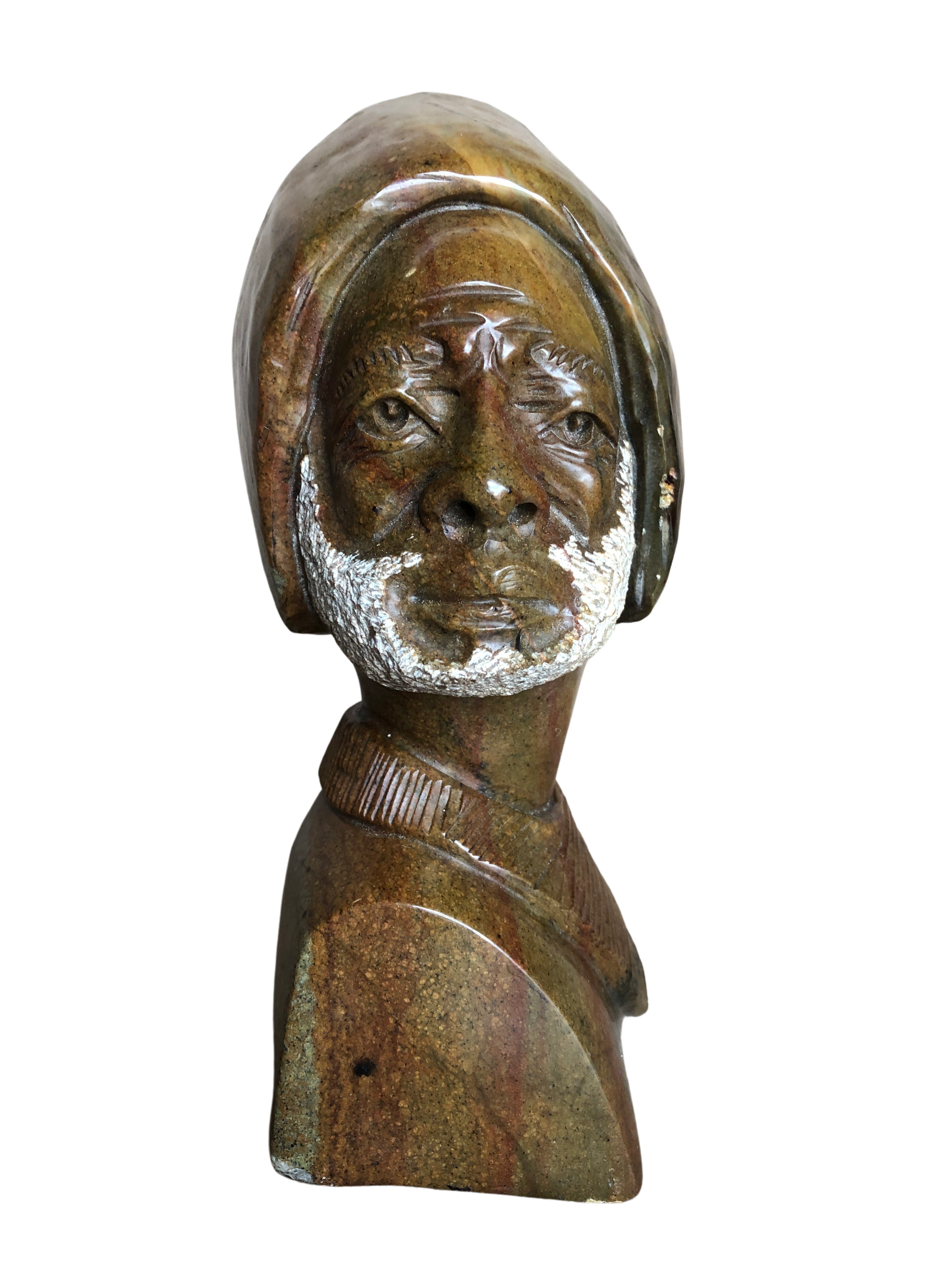Payment & Security
Your payment information is processed securely. We do not store credit card details nor have access to your credit card information.
Description
Dimensions: L:11in W:17,2in D:5.1in
Shona Tribe Fruit Serpentine Madala – This bust sculpture of an elderly man is hand carved in fruit serpentine stone by Zimbabwe's talented Shona artists. Zimbabwean artists are well-known for their stone carvings, and they are among the world's most skilled carvers. For nearly a thousand years, the Shona have been hand sculpting stone into works of art. Although the craft is ancient, the style has evolved over time, and the sculptures created today are both beautiful and elegant. The contemporary yet timeless shape of these sculptures adds opulence to the home and complements any décor.
About the Tribe
The Shona ethnic group is indigenous to Southern Africa, primarily Zimbabwe, but there are significant Shona populations in South Africa, Botswana, Zambia, and Mozambique. In Zimbabwe, the Shona people make up most of the population. Stone sculpture and mbira music have made them famous around the world (mbira: an instrument made of a hollow gourd with metal reeds that the player plucks). This tribe is believed to be responsible for the construction of several ancient stone wall sites in Zimbabwe. Great Zimbabwe, an 800-hectare city that flourished between the 11th and 15th centuries AD, was built on the physical foundation of these walls. Great Zimbabwe, which is now a UNESCO World Heritage Site was a center for trade, and archaeologists have discovered artifacts on site from as far away as China.
About the Stone
Fruit serpentine is a colorful and harder variety of serpentine stone. The stone comes in a variety of colors with deep veins of variegated strata, and no two stones are comparable due to the distinctive pattern of mineral inclusions with each stone. Serpentine stones, which formed around 2.6 billion years ago, contain quartz, chromium, manganese, copper, and iron minerals. The stone is hand-mined in the Kwekwe area, south-west of Harare, and is labor-intensive, time-consuming, and costly. So, for these very practical reasons, fruit serpentine sculptures are rare since it is so difficult for artists to obtain, but its fine finish, durability and hardness make it desirable for artists.
Estimate shipping

Embrace the Spirit of Africa - Buy Handcrafted Art, Support Local Communities
Step into a world of authentic, handcrafted African artifacts, each whispering tales of our rich tribes.
Every purchase you make doesn't just add art to your collection, it supports our vibrant African communities. Your action keeps age-old traditions alive and empowers the passionate artisans behind each piece.
Dive into the heart of Africa today. Own a piece, share a story, make a difference. Shop now!

